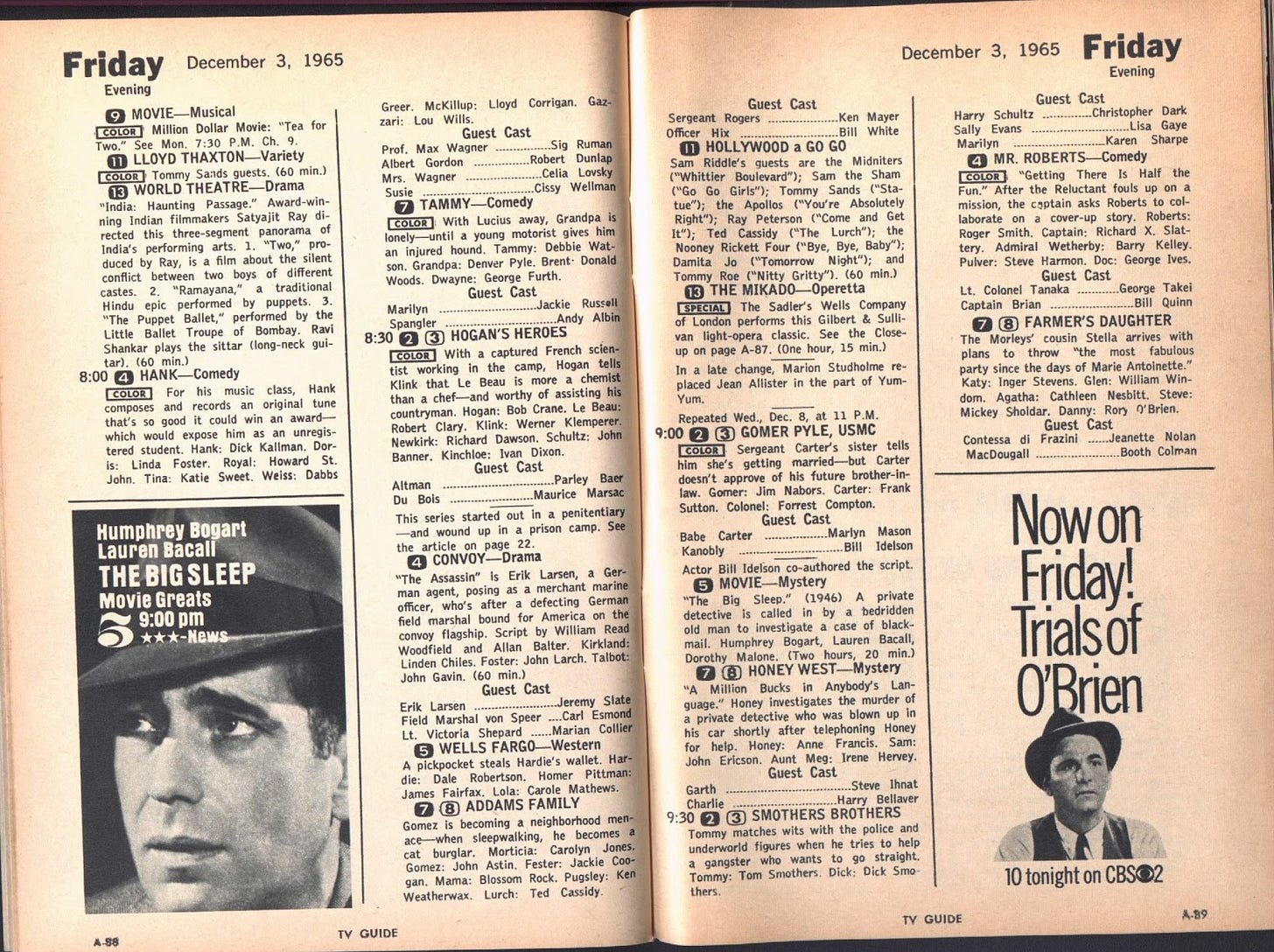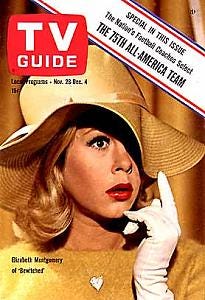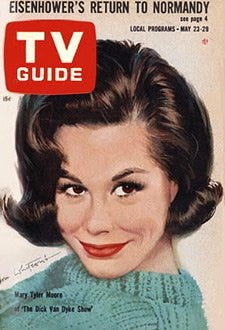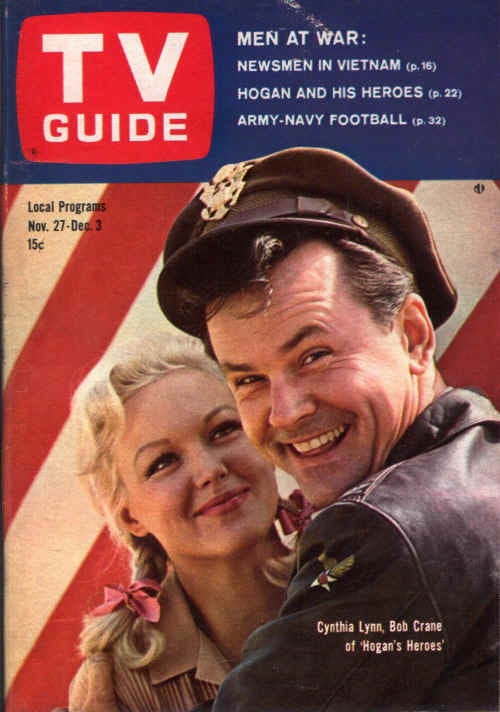I rarely write about myself as a publisher. Primarily due to the mystique of working behind the velvet curtain and not letting anyone see the work that is put together, and to be perfectly honest, I do not know precisely what the hell is the proper way of being a publisher. For me, it started as Show N’ Tell at elementary school. As young students, we were asked to bring something from home to show and present to our class. Most people brought their favorite object of some sort. It could be a doll from a girl or a toy truck from a boy (very gender-specific in those days). Often, it can be something personal like a watercolor painting or an ashtray made with dried macaroni and then usually painted either gold or silver. What I brought to the classroom was the essential item or publication in my existence at that time - the TV Guide.
Although I wasn’t allowed to watch a lot of TV at home, except when I stayed with my grandparents over the weekend, where it was TV viewing non-stop, from early morning to late afternoon, following a break where I went outside to run, walk or play, and then back to the TV set for more intense viewing till bedtime. I want to say that I learned to read at a young age from looking at my parent’s extensive library of books or an interest in children’s literature at the time, but the truth is the primary source of reading was the weekly TV Guide.
I would get the TV guide on a Sunday morning and mark all the shows I wanted to watch that week with a colored pen. My hobby was a strange one; since I mentioned I couldn’t watch many TV shows at home, I pretended to, and there were shows that I had never seen, but I read about them and marked them off on the Guide as seeing them. So, I had an imaginative version of many shows, but only those shown regularly from Monday to Friday. The weekend was real-time watching from Saturday morning to Sunday night. This is before cable or streaming, or even VHS taping. Suppose I wanted to watch a show, I had to be there on time and in front of a set. Occasionally, I had to go to a party with my family or a family gathering over the weekend, which spelled out death. The one thought in my mind was that I was missing an episode of a specific show. “Johnny Quest” comes to mind, a show that I was devoted to, and it was rare to have an animated show playing in the evening. But I remember we had to leave the house for some unimportant reason (to me at least), and I had almost a panic attack thinking I was missing that episode. Luckily, they repeated a lot of shows over the summer, so if I blew this one, I more likely could see it three or four months later.
I would wake up in the morning early to study the TV Guide. With a pen in my hand, I would read each description of every show. Even shows I have no interest in, I just wanted to make sure I covered the waterfront, as one would say in my favorite song. I was deeply concerned with programming that started around 11 PM because I was forced to go to bed at that hour. I would lie awake in bed, thinking about what I missed on the TV set. Mostly films, but they always sounded interesting to me. I remember seeing Howard Hawk’s “The Big Sleep” on Channel 5 at 9:00 P.M. My family was big cinema-goers, and sometimes they would take me. But to be honest, I rather watch a movie on TV, with the commercials running through it. It was hard for me to pay attention to a whole film being played without interruption because I felt my mind was going to different places. Watching a commercial was like reading a book and waiting for the end of the sentence or the paragraph break. Also, the description in the Guide was great.
Bear in mind that I never collected the TV Guide. Once the week was over, I would throw it away, even though I wrote detailed notes or footnotes at the bottom of the page regarding a show that I would be interested in seeing. Also, as a literary style, I was very much taken by the caption description of specific episodes. There was something very zen-like at times. For example, here’s “Gomer Pile, USMC.”
“Sargent Carter’s sister tells him she’s getting married - but Carter disapproves of his future bother-in-law. Gomer: Jim Nabors. Carter: Frank Sutton. Colonel: Forrest Compton. Then there will be a separate paragraph giving credits to the Guest Cast. Babe Carter - Marlyn Mason. Kanobly - Bill Idelson. Then oddly enough, there is a separate line saying, “actor Bill Idelson co-authored the script.” Being a young cineaste or TV fan, this was priceless information.
As I approached my teenage years, I got more interested in literature, which eventually led me to publish. Nevertheless, the first work on paper that made an impression on me was TV Guide. My first interest in writing was hoping that somehow I could get a job writing plot captions for the publication. It was incomprehensible to me that these writers were never known, and in a way, it is a lost art form or literature that no one cares about - except me, of course.







In retrospect, it astonishes me that I remained addicted to TV Guide for as long as I did, long after I'd abandoned most US TV in favor of the UK TV that was available mostly on PBS (the NYC Metro market having 3 PBS stations with different schedules and different specialities). Although I collected other magazines, I had the sense not to collect a weekly digest whose information was transient. I subscribed for a while, but subscription copies often arrived late, so I went back to buying it in the supermarket. In our area an issue would usually appear on the supermarket rack on the Tuesday before the week that it covered, so I always did my food shopping on Tuesday. Now that everything I watch is streaming, making schedules mostly moot, it is very difficult for me to put myself into the head of someone who did what I did. Even with my streaming, I never watch series where episodes are doled out weekly. I refuse to play that game. I'll start a series only when all of the episodes are up, often watching a series long after it has been uploaded. I AM an amateur student of culture, and I think the TV Guides interested me as cultural artifacts long after they were useful as guides for what to watch.
In that Seinfeld episode where Elaine has an admirer who collects TV Guide, Elaine dislikes him and the only one who has any empathy of George's father, who,as I remember, also collects TV Guide. But is was a good piece of pop culture and getting more respect all the time. Great piece.